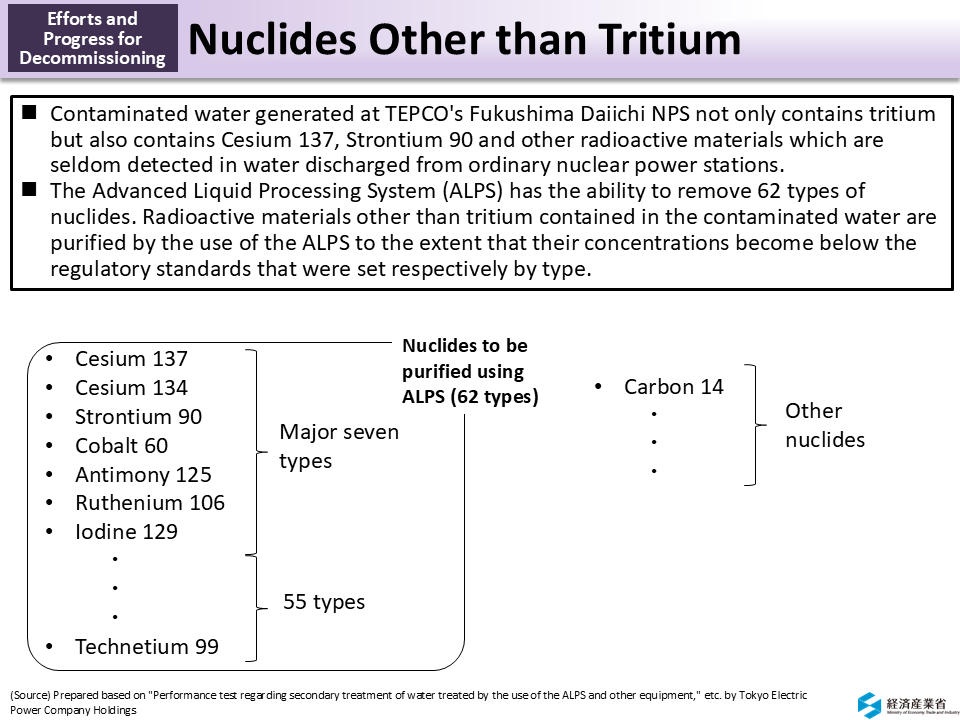Nuclides Other than Tritium
Contaminated water generated at Tokyo Electric Power Company (TEPCO)'s Fukushima Daiichi NPS contains not only tritium but also Cesium 137, Strontium 90, Iodine 129, and other radioactive materials. These types of radioactive materials normally remain in nuclear fuel rods at ordinary nuclear power stations and are seldom detected in water discharged therefrom. (Related to p.30 of Vol. 1, “Products in Nuclear Reactors”)
Regarding these radioactive materials, purification using the Advanced Liquid Processing System (ALPS) and other equipment is conducted prior to discharge into the sea to reduce their concentrations to levels below their regulatory standards, and then, dilution by 100 times or more is conducted together with tritium. Through these procedures, concentrations of radioactive materials that were contained in contaminated water are reduced to less than 1/100 of the regulatory standards when the water is actually discharged.
In ALPS treated water after purification using ALPS and other equipment but before dilution, concentrations of many of the contained nuclides other than tritium are reduced to levels below detection limits. There remains the possibility that Cesium 134/137, Cobalt 60, Ruthenium 106, Antimony 125, Strontium 90, Iodine 129, Technetium 99, Carbon 14, etc., may be detected but at concentrations below the regulatory standards.
Regulatory standards for radioactive materials contained in liquid and gaseous waste that are discharged into the environment from nuclear power stations, etc. in Japan are set based on the total effects by all radioactive materials contained in waste, not based on the types of contained nuclides, and even if some types of these nuclides are detected, they do not necessarily have effects on human bodies and the environment. Incidentally, other nuclear power stations and reprocessing facilities inside and outside Japan also discharge waste containing radioactive materials into the sea or rivers or into the air through ventilation, etc. in compliance with the laws and regulations of respective countries.
- Included in this reference material on March 31, 2022
- Updated on March 31, 2025

